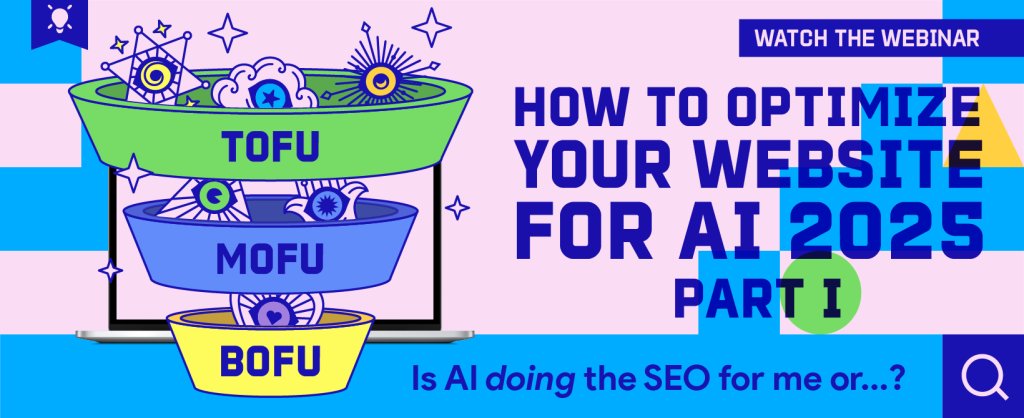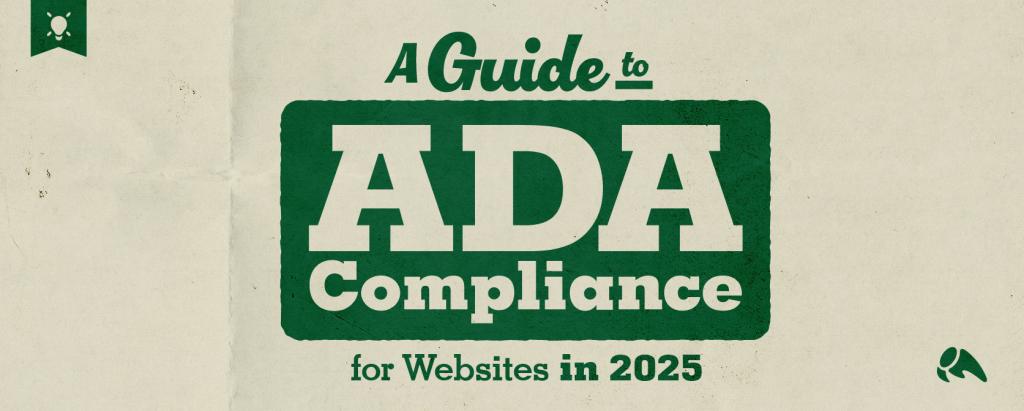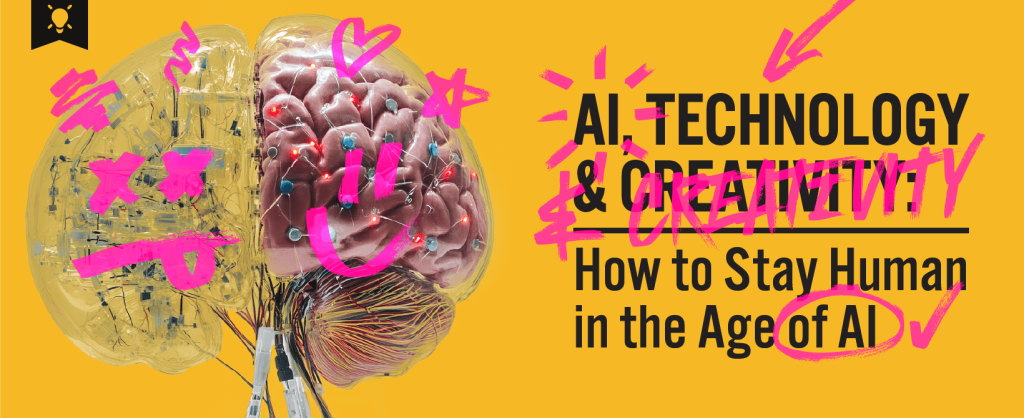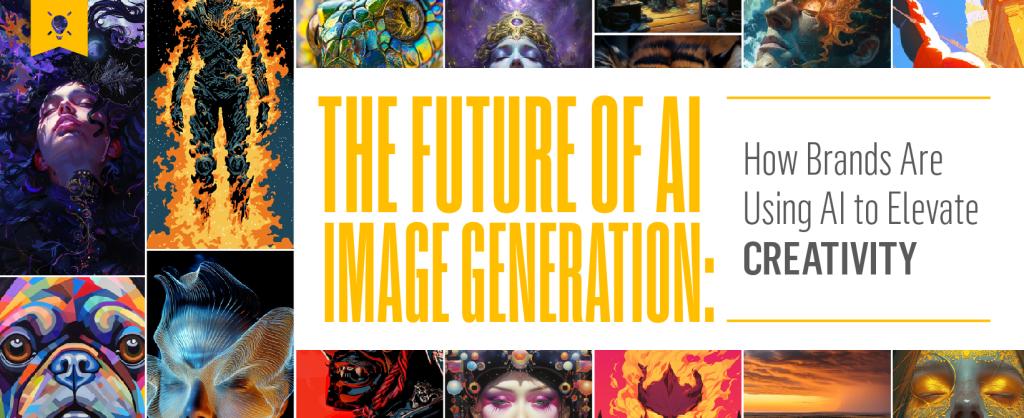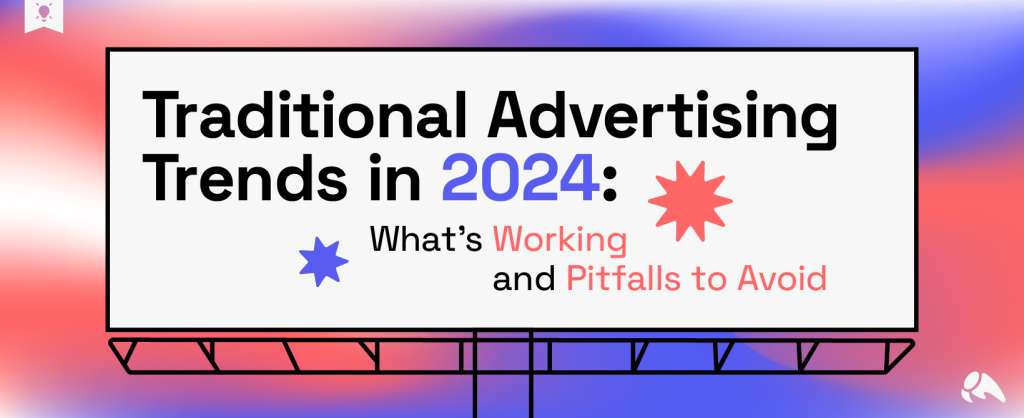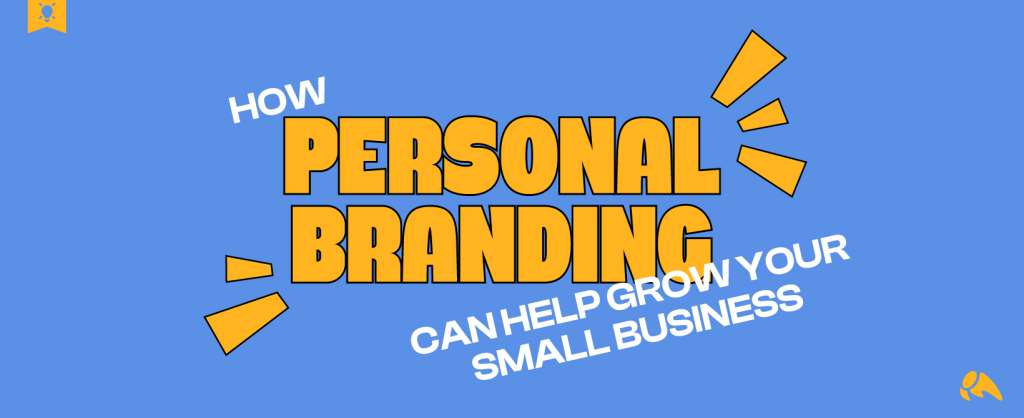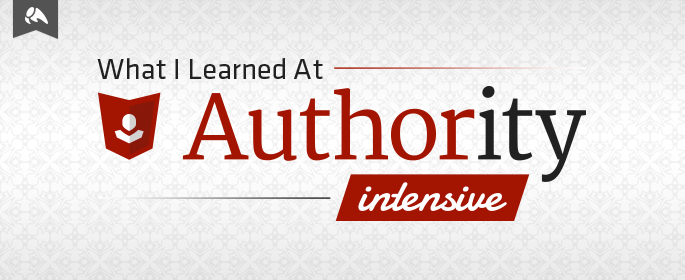
Last week I achieved content nirvana attending the first Authority Intensive, a two-day conference that takes a tactical approach to content marketing. Programming was broken out into four topical tracks – design, content, traffic and conversion – to ensure the full picture was being created. Speakers presented on what they knew, what they had done and what they had seen. Even before landing in Denver I was confident I’d come away from the experience with increased knowledge and things to act upon. What I wasn’t expecting was to leave newly inspired to create things that matter and to produce art.
Woah.
Here’s what I learned at Authority Intensive:
There Is No Content Marketing. Only Marketing.
Went to a content conference, ran into a bunch of SEOs. 😉 #Authority2014
— Lisa Barone (@LisaBarone) May 8, 2014
I know. It’s shameless to start this off with one of my own tweets, but that’s how I roll.
The truth is, I was a little taken aback walking into the kickoff mixer of Authority Intensive. I had half-expected a room of hippy-dippy creatives, people who wrote from an inner passion and worried about visibility later (or didn’t worry about it at all). But that’s not what I walked into. Sure, there were the creative and the people who write based on interest, but there were also veteran SEO faces like Loren Baker, Greg Boser, Brian LaFrance and Dennis Goedegebuure. There were lawyers and accountants and higher-ed marketers who wanted to reach a real audience through new and better content types. It was a room of people who, regardless of what appeared on their business card, understood the importance of content and wanted to create content that mattered.
This wasn’t my first time attending a content-focused conference, but it was the first time seeing the evolution that has taken place. There is no SEO. There is no content marketing. There is only good marketing. The days of rogue specialists are over.
Muahaha!
Creating Meaning, Not Noise
For many people, marketing signal doesn’t get louder than when it’s coming from Seth Godin. Seth opened Authority Intensive by challenging all of us to stop creating crap and to start (or maybe, go back to) creating art and meaning. If you want to make a sound, that’s the only way.
After 15 years on the Internet, we can safely say shortcuts never work. Seth Godin #Authority2014
— Geoff Livingston (@geoffliving) May 8, 2014
The content being produced by the majority of marketers and business is two things – industrialized and banal. It’s being produced on an assembly line. It’s boring and it’s trite. There is an alternative to that. The alternative is to make art.
The assembly line approach worked when we lived in times of scarcity, but that’s not our world anymore. We live in a world of unlimited choices – blogs, people, brands, etc. If you come at people with a scarcity mindset, they’ll walk on by. Today, when you open up shop you have two choices. You can either be the place that has the BEST X or be the place “people like us” buy X from.
He called out the Upworthys and the BuzzFeeds who make a living off pageviews and shallow content. He dared you to be better than that. Create trust, not clicks. Make it so people would miss you if you suddenly weren’t there.
Great question for marketers “Am I in the business of talking to people who will miss me when I’m gone?” @ThisIsSethsBlog #Authority2014
— Jason Miller (@JasonMillerCA) May 8, 2014
Don’t ask “How can I get more clicks” rather “How can I earn more trust?” – Seth Godin #Authority2014
— Jimmy Daly (@jimmy_daly) May 8, 2014
Whether you love Seth or are “meh” about him, it was difficult to sit in that room and not leave it inspired. I left pretty determined to change the world.
You Are Your Company & The Stories You Tell
I have a serious professional #girlcrush on Sonia Simone, which is why I basically lost my crap when Sonia walked onto the stage. In my defense, so did everyone else.
.@soniasimone walks to the stage and the crowd goes nuts with screams and applause. My heart is happy. #Authority2014
— Lisa Barone (@LisaBarone) May 8, 2014
Sonia’s talk centered on her own growing up, going from the little leagues to the big leagues of content marketing. Turns out it’s the same rules and the same core elements existing in both worlds. The difference is the level you are executing at. Much of Sonia’s talk revolved around our ability to tell stories. Not the cool stories the experts say we should be telling our customers, but the stories we tell ourselves about who we are, what we believe and what we can do. Sometimes we tell ourselves stories that serve us and propel us forward. And sometimes we tell ourselves stories based in fear and that hold us back. Or sometimes we spend too much time listening to the stories others tell, about themselves and us, and take them for truth.
“Never let somebody dumber than you talk you out of your big idea.” –@soniasimone at #Authority2014 — Chris Guillebeau (@chrisguillebeau) May 8, 2014
Don’t do that. Instead, listen to your own audience.
“Your authority comes from your audience..” This is an awesome quote @soniasimone #Authority2014 — Dennis Goedegebuure (@TheNextCorner) May 8, 2014
The Internet gives us all the opportunity to identify what gives us juice and to determine our own rules of success. Get yours. Don’t chase someone else’s.
Forget Good Content, Create Epicness
Tired of the old adage that if you create great content, your audience will find you? So is Jon Henshaw.
“Quality content is no longer good enough. It had to be epic.” @RavenJon #authority2014 — Rob Walling (@robwalling) May 9, 2014
If Jon were to tell you that simply creating great content is the key to your business success, he would be a giant liar. It takes more than that. That’s why Jon advised going one step further to create epic content. What is epic content? It’s content that considers UX and how users are going to interact with that content.
- It’s content that is well-branded.
- It has an identity and its written by authors who also benefit from an identity.
- It’s properly laid out to encourage interaction.
- It’s easy to share.
- It’s repurposed content.
- It’s content that is enhanced with elements like Google Charts.
Epic content isn’t a blog post. It’s content written with a purpose, for a clear audience and with a clear brand in mind. Stop creating meaningless things. Create content that matters, that stands up and that is well-produced. Take everything to a higher level. This is something Dennis Goedegebuure also addressed in his presentation, talking about how Airbnb storyboarded the perfect travel experience for guests and the perfect travel experience for hosts to understand the experience in a way that allowed them to present not good content, but epic content.
Dennis Goedegebuure (@TheNextCorner) @AirBnB says key to a strong brand is sweating the details behind the user experience #Authority2014
— Fredric Paul (@TheFreditor) May 8, 2014
Discover Through Social, Validate Through Search
Consumers discover through social and validate through search with a specific query. #Authority2014 @leeodden — Overit (@overit) May 9, 2014
That’s a quote from Lee Odden’s talk at Authority Intensive. I loved it. I loved it because it’s such an obvious statement, but one you probably don’t spend much time optimizing for. We know that people seek out recommendations via social media. We know they poll Twitter and Facebook and Quora to find out about new products or services. We also know that they perform search queries, as well, to find this information via Google and Bing. But we don’t think about the relationship that exists. That we should be leaving content to be found after the social query is performed. That we should be optimizing for that search. And that’s a missed opportunity. Another Lee quotable?
Getting information off the Internet is like getting a drink from a fire hydrant – Mitchell Kapor #Authority2014 @leeodden — Overit (@overit) May 9, 2014
Truth bomb.
Starting is a Mindset

If you didn’t leave Day 1 feeling inspired, Darren Rowse’s Day 2 keynote surely did the trick, reframing Sonia’s sentiment that “success” is more about DOING the things you know you should than discovering the secrets you don’t know yet. According to Darren, we’re living in remarkable times, an era ruled by the misfits, the introverts and those who have a problem following the rules. That means if you feel unremarkable, you’re in good company. Don’t wait to start, start now.
Don’t wait until you know who you are to get started. The way you figure yourself out is by making things.#Authority2014 @problogger — Overit (@overit) May 9, 2014
If you’re afraid, that’s okay. Fear is a sign that something important is about to happen. Put your readers or your audience first in everything that you do and serve their purpose. Who are they? What are their needs, problems, desires, challenges, dreams, fears, goals, language, habits, loves, hates and passions? Get clarity about the change you want to see in readers. Collect their problems so you are able to answer them. Create meaning.
Darren Rowse quotes @briansolis at #authority2014 “Don’t compete for the moment, compete for the meaning” — Lee Odden (@leeodden) May 9, 2014
“They can chase eyeballs, I’m after hearts and souls” @problogger #love #authority2014 — andrea_r (@andrea_r) May 9, 2014
And keep at it! Darren says 99% of great bloggers are not awesome on day 1. Their awesomeness is the accumulation of value they create over time.
Don’t Bolt Your Strategy On, Bake It In
Ann Handley of MarketingProfs spoke about the importance of baking empathy into your marketing strategy and, well, she brought the house down. Ann’s message to marketers? Focus on empathy. Focus on empathy and experiences instead of articles and blog posts. Focus on relevance and inspiration. Focus on being useful. Think like a publishers because publishers have a mission: Ask yourself, who do you want to reach, what value are you giving them, why is that important to them? What do you want them to do next?
The idea of content marketing is NOT to be good at content. You want to create content that drives business. #Authority2014 — Overit (@overit) May 8, 2014
Show pathological empathy for the reader. Create content on behalf of them that is so in-tune with what they need.
The formula for epic content from the one and only @annhandley #authority2014 pic.twitter.com/0DvvC7K1DP — Jason Miller (@JasonMillerCA) May 8, 2014
Tell stories about people. Your story is always about people regardless if you talk about routers or what. Tell the story of what your feature does for the customer. How does it help? Be useful. Be pathologically useful.
Love it.
Communication Matters
Arienne Holland of Raven spoke about the importance of proper communication, noting that content, alone, is not enough. Content needs to communicate a message and many of us are passive communicators. We’re all in the communication business and our agencies are filled with them – marketers, advertisers, PR folks, sales executives, customer service people, etc. We all need to get better at it.
How can we improve communication? Arienne shared a simple formula that I thought was really useful:
Answer: Answer the customer’s question with truth. No shortcuts. No meandering.
Value: Reinforce the customer’s value to you. Reinforce your value to the customer.
Anticipate: Anticipate the customer’s next question or need. Address it now.
Arienne may have been the only one to give a presentation with communication in the title, but in reality, everything was about being able to communicating – using content to communicate, communicating with your team, communicating with your audience. We talk so much about words and content, it was nice to see some focus on the intended purpose of what we’re creating.
Those were some of my key takeaways for Authority Intensive. Where you there? What stood out for you? What do you think about communication being the cornerstone of all this content?
